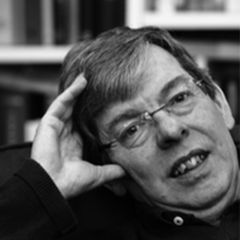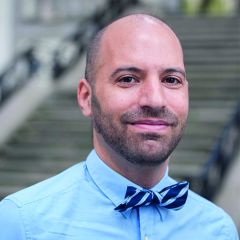History
The Cambridge History degree gives you the opportunity to explore the past from many different angles – including political, economic, social, and cultural history.

Course overview
The papers on the History degree takes students from broad overviews to more in-depth treatment of subjects, culminating in the third-year ‘Special Subject’. In each of the three years, students will also engage with a focus on primary sources leading to a third-year dissertation topic and will take a paper on ‘Historical Thinking’ that explores how historians set about researching and writing history.
There is a choice of papers in each year, subject to availability of spaces, and because of the large number of historians in Cambridge, there are many from which to choose, from ancient and medieval topics to modern and world history. The ‘Historical Thinking’ papers in each year are the only compulsory element, and are taught mainly in College.
For more information about the course and its modules, visit the University website.
What is it like to study History at King’s?
History students typically have five or six hours of lectures per week in the Faculty of History, and two weekly supervisions (an hour of one-, two- or three-to-one teaching) in College. The King’s History students also have some group teaching within College related to the ‘Historical Thinking’ papers on the degree, usually two sessions a term in first year and a bit more in second and third year. History students at King’s are encouraged to pursue a language as a non-assessed, extracurricular element, and would usually have another supervision a week for that as well. A lot of time is spent on independent study – reading, reflecting, writing – most likely in either the College library or the University Library.
We usually take eight to ten students each year for the single-subject History degree, one or two for the joint History & Modern Languages degree, and two or three on the History & Politics degree.
In a typical supervision, a student will be asked to explore their understanding of that week’s subject and be challenged on how they think about it. If it’s a week where they have submitted an essay, the supervisor would give some one-to-one feedback on that, in terms of writing and essay structure as well as subject comprehension.
What do we look for in an applicant to History?
We look for students who are academically curious, have explored history outside of their school or college curriculum, and are ready to be challenged.
Requirements
A Level: A*AA with A* in History
IB: 41-42 points overall with 7, 7, 6 at Higher Level
Subject requirements: History
Admissions assessment: None
Written work: 2 pieces
Written work
Further details about written work will be provided in due course.
Careers and graduate opportunities
As a History graduate, you’ll have the ability to work independently, evaluate evidence, and present arguments clearly and persuasively. Past graduates have worked across many different sectors, including journalism, broadcasting, teaching, research, finance, consultancy, law, and public administration.
What is the best thing about studying History at King’s?
History is a strong subject at King’s, with a large cohort and several History Fellows, and the chance to discuss, debate, and analyse history with your peers is one of the best things about it.
A top tip for applicants to History at King’s
Show us why you are interested in History – what intellectual excitement it has for you.
People
The Directors of Studies for 2025-2026 are Dr Dror Weil (Part IA), Dr Angus Russell (Part IB), and Dr Marcus Böick (Part II).













